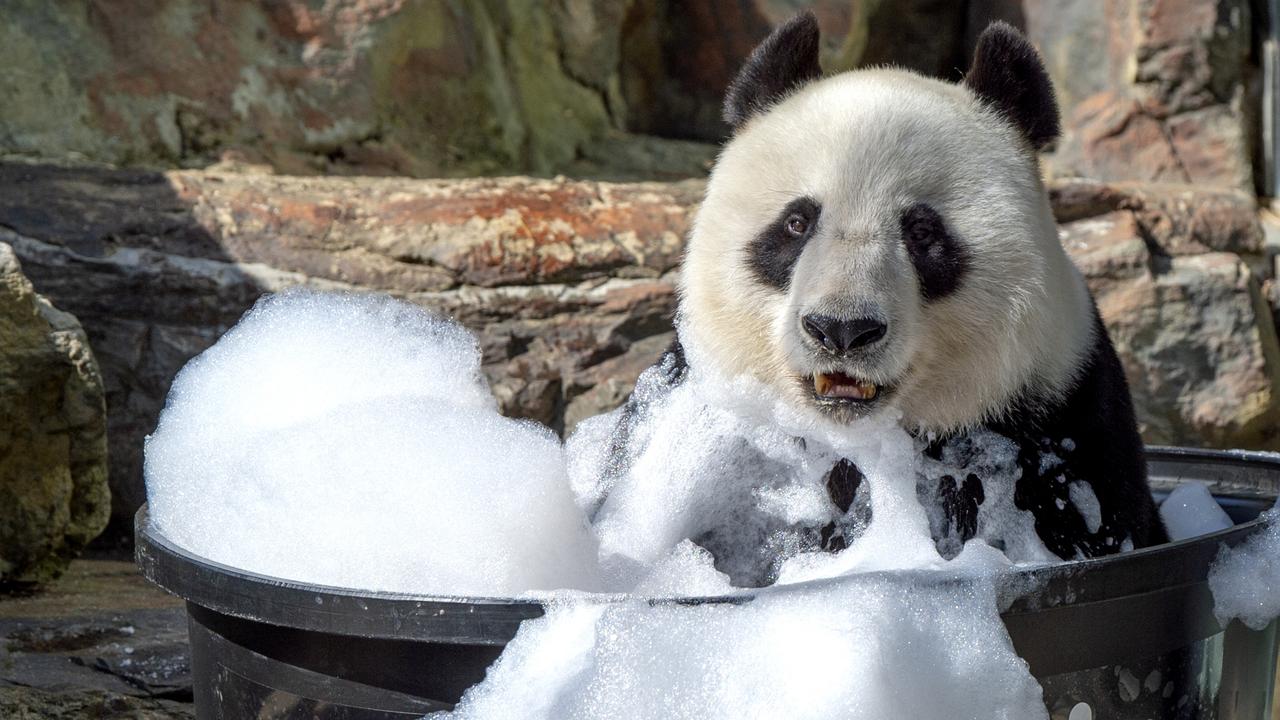Giant pandas Wang Wang and Fu Ni set to stay at Adelaide Zoo for five more years
Wang Wang and Fu Ni’s deal to stay in Adelaide will expire next month — but Adelaide Zoo is now “very, very confident” of finalising a last-minute extension.
SA News
Don't miss out on the headlines from SA News. Followed categories will be added to My News.
- Plans for $40 million five-star safari resort at Monarto
- Subscribers: Win 12 months of Foxtel HD and a Samsung 4K TV
Adelaide Zoo is poised to retain its prized giant pandas for at least another five years with a last-minute deal expected to be sealed with China just ahead of next month’s deadline.
Popular tourism drawcards Wang Wang and Fu Ni’s future in Adelaide is not yet guaranteed, despite federal and state government assurances and funding promises.
But Zoos SA chief executive Elaine Bensted said outstanding issues were expected to be concluded with the China Wildlife Conservation Association just before the current deal expired at the end of next month.
Financial terms have been agreed but conservation and research exchange projects involving the Chinese in Australia during the next five years have yet to be settled.
“I’m very, very confident that Wang Wang and Fu Ni will remain in Adelaide,” Mrs Bensted told The Advertiser.
Chinese wildlife conservation authorities traditionally waited until the eve of a contract’s expiry to confirm renewal, Mrs Bensted said, arguing this was not cause for concern.


She flew to China in April to start the ongoing talks with the Wildlife Conservation Association to retain the pandas until 2024.
The State Government in April committed to fund Zoos SA to extend the lease, which previously was paid by the Federal Government.
This cost about $1.5 million annually but is believed to be less under the agreement now being negotiated.
The initial deal to loan Wang Wang and Fu Ni was inked in September, 2007, and spearheaded by the-then foreign affairs minister Alexander Downer as a boost to his home state’s tourism and Australian/Chinese relations.
Male Wang Wang, 14, and female Fu Ni, 13, were bred in captivity at a Sichuan giant panda nature reserve and it was hoped the pair would breed in Adelaide as part of a worldwide program aiming to ensure the species’ long-term survival.
The annual breeding program was paused in August because of the ongoing loan extension talks, despite the pair’s repeated failure to conceive, and enabled collection of hormonal and other data.
The next five years are considered critical to producing panda offspring, which the zoo would keep for two years before sending to China, because Wang Wang and Fu Ni are entering peak mating maturity.
Mrs Bensted said it was pleasing that the giant panda’s conservation status had been upgraded during the past decade, from critical to vulnerable, indicating funding from zoos around the world was working.
“It’s very rare to see an animal improving conservation status,” she said.
The pandas are one of the most popular attractions at the zoo, which attracts about 450,000 visitors annually.
Mrs Bensted said the pair was now one of the cheapest exhibits, despite large initial establishment costs, because water to grow their bamboo diet was supplied by sponsorship, as was fertility testing for breeding and research.

